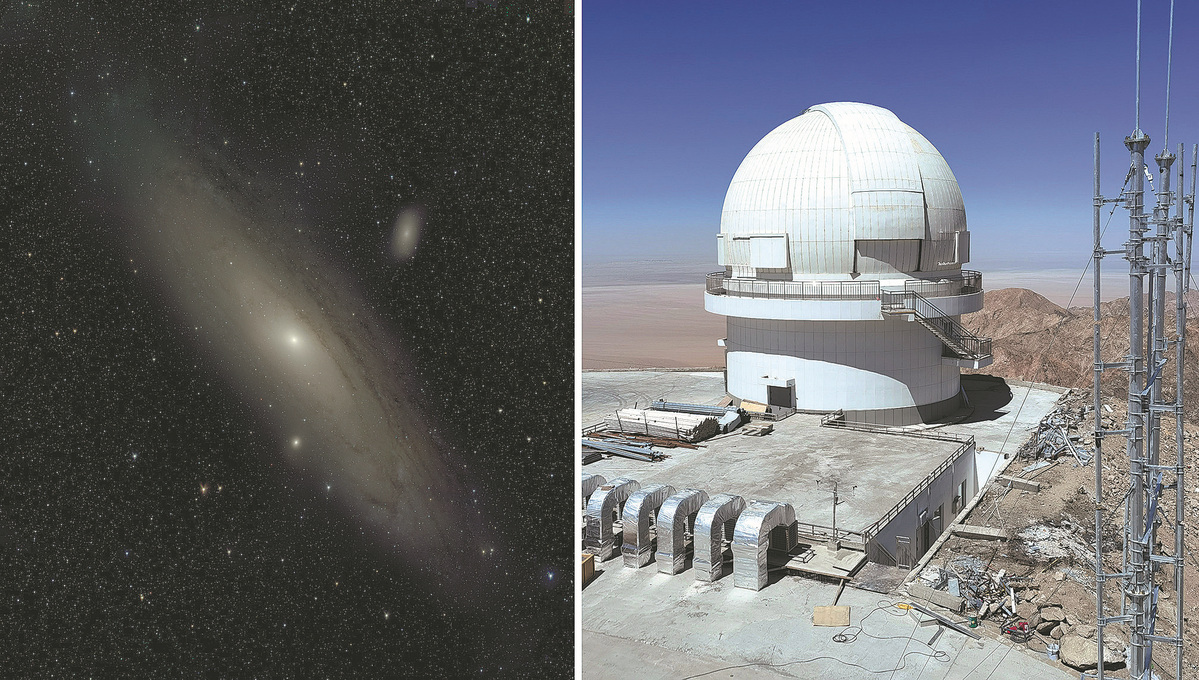Wide-field telescope put into operation
By JIANG CHENGLONG | China Daily | Updated: 2023-09-19 09:07

Facility is powerful tool in time-domain survey in the Northern Hemisphere
A spectacular image of the Andromeda Galaxy, located over 2 million light-years from Earth, has been released to coincide with the most powerful wide-field telescope in the Northern Hemisphere being put into operation, demonstrating its capability.
China's Wide Field Survey Telescope was put into operation on Sunday in Northwest China's Qinghai province, developed by the University of Science and Technology of China and the Purple Mountain Observatory of the Chinese Academy of Sciences.
The telescope, also known as the Mozi surveying telescope, will significantly enhance China's capabilities in time-domain astronomical research, according to CAS.
Mozi was an ancient Chinese philosopher who is said to be the first in history to conduct optical experiments.
The telescope is located on top of Saishiteng mountain near the town of Lenghu in the Haixi Mongol and Tibetan autonomous prefecture in Qinghai. The town is famed for being China's "Mars Camp" due to its eerily eroded desert landscape that closely resembles the surface of the red planet.
According to CAS, the WFST boasts an optical telescope of 2.5 meters in diameter and a 765-million-pixel camera, equipping it with the strong surveying ability that allows it to survey the entire northern sky every three nights.
The Andromeda Galaxy is the closest large spiral galaxy to the Milky Way and has a similar structure and metallicity, making it an ideal research object for exploring the formation and evolution of the Milky Way and similar galaxies.
The WFST has both a large field of view and high-resolution imaging capabilities, enabling it to capture multicolor images of the Andromeda Galaxy and its outlying regions. The telescope generated the image using 150 photos taken on multiple nights of observation.
According to CAS, the telescope is expected to play an important role in the fields of high-energy time-domain astronomy, galaxy structure and near-field cosmology.
Zheng Xianzhong, the WFST's deputy chief designer, was quoted by Science and Technology Daily as saying that the telescope has powerful survey capabilities and can obtain a large amount of image observation data to carry out astronomical research.
"Through repeatedly scanning and comparing images of the sky, we can detect solar system objects that move on the celestial sphere and also discover celestial bodies with brightness variations," he said.
"With the telescope, by accumulating and stacking observation data, we will be able to improve detection depth and observe darker and more distant celestial bodies, gaining a deeper understanding of the structure of the Milky Way and the neighboring universe," said Zheng.
























